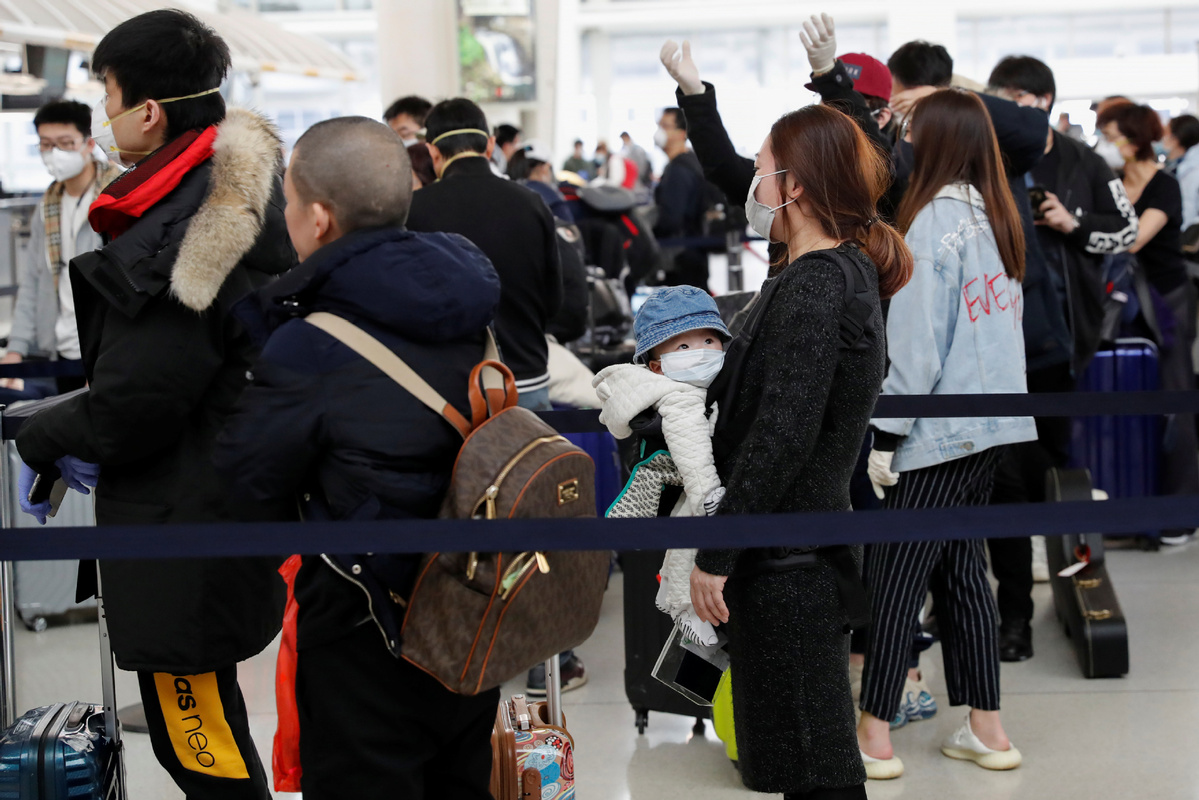Trump to suspend Chinese airlines' access to US






The Trump administration announced Wednesday that it will suspend the scheduled passenger operations of all Chinese air carriers to and from the US starting June 16, or possibly sooner, at the president's discretion.
The new ruling would impact seven carriers: Air China, China Eastern Airlines, China Southern Airlines, Beijing Capital Airlines, Hainan Airlines, Sichuan Airlines and Xiamen Airlines.
News of the suspension comes at a difficult time for travelers, who already face a shortage of tickets and high prices for flights between the two countries, both because of the novel coronavirus pandemic and continuing US-China tensions.
In recent days, protests, some of which have turned violent, have swept across the US over the death of George Floyd. As a result, many overseas Chinese residents are concerned about their safety and are weighing their options on returning to China.
The White House barred most non-US citizens from entering the US from China in late January. Three US carriers operating scheduled US-China passenger flights — American Airlines, Delta Air Lines and United Airlines — began suspending their fights in early February.
The number of weekly scheduled combination flights operating between two countries decreased from 325 in early January 2020 to 20 by mid-February but increased to 34 in mid-March.
As the number of coronavirus cases in the US rose, the Civil Aviation Authority of China (CAAC) issued a March 26 "Notice on Further Reducing International Passenger Flights during the Epidemic Prevention and Control Period" (the CAAC Notice), which provides that Chinese airlines could maintain just one weekly scheduled passenger flight on one route to any given country.
Pursuant to the CAAC notice, foreign airlines that were operating before March 12 are allowed to maintain only one route to China, with no more than one weekly flight.
Currently, there are four weekly scheduled flights between the US and China operated by four Chinese airlines: Air China, China Eastern Airlines and China Southern Airlines, and Xiamen Airlines. By March 12, US airlines had completely ceased flying passenger service to and from China.
The US Department of Transportation (DOT) said that Chinese aviation authorities had failed to permit US air carriers to fully exercise their bilateral rights with respect to the provision of scheduled passenger services between the US and China.
The CAAC submitted a letter to the DOT on May 25 asserting that its provisions "equally apply to all domestic and foreign carriers, being fair, equal and transparent".
The CAAC said it does not "wish to be obliged to respond by taking countermeasures on US carriers" and urged the DOT to revoke its order.
The news has drawn the attention of many in the overseas Chinese community, especially among Chinese students studying in the US, who already had trouble booking tickets home due to the reduction of flights between the US and China earlier this year.
Daisy, a Chinese student at the University of Hawaii who didn't give her surname, told China Daily that due to the coronavirus pandemic, she has no plans to visit her family in China this summer, so the impending ban on Chinese airlines doesn't really affect her current situation.
"As a Chinese international student, I think this policy definitely has an impact on those students already in China. The suspension of Chinese carriers means it will be more difficult to fly home or back to the US to go to school. You'll need several transfers," she said.
"I don't know how long this policy will last, but I still hope everything will return to normal," she added.
Cecilia, a student at the University of California, San Diego, who also didn't give her surname, said the news didn't come as a surprise because COVID-19 has caused so many changes.
"I think this policy is still likely to change, because it is certainly not a long-term plan," she said. "It's not necessarily a bad thing for overseas Chinese students. It all depends on how China and the US negotiate after that. So let's wait and see."
In light of the pandemic and the protests, Cecilia said the important thing now is for Chinese students in the US to pay attention to their personal safety.
John Chan of Arcadia, California, said he is concerned about the escalating tension between US and China, but he said there's still room for the two countries to negotiate and fix their differences over air travel.
Yi Zong in Washington contributed to this story.





























